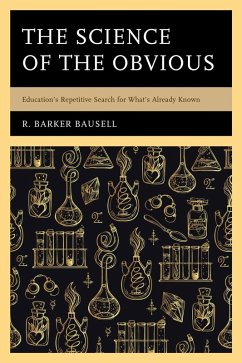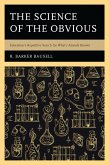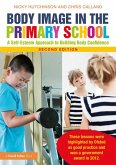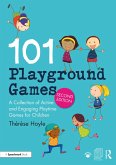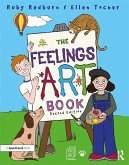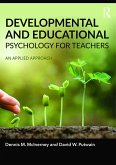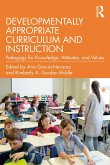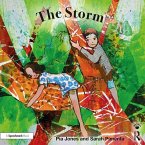R. Barker Bausell
The Science of the Obvious (eBook, ePUB)
Education's Repetitive Search for What's Already Known
24,95 €
24,95 €
inkl. MwSt.
Sofort per Download lieferbar

12 °P sammeln
24,95 €
Als Download kaufen

24,95 €
inkl. MwSt.
Sofort per Download lieferbar

12 °P sammeln
Jetzt verschenken
Alle Infos zum eBook verschenken
24,95 €
inkl. MwSt.
Sofort per Download lieferbar
Alle Infos zum eBook verschenken

12 °P sammeln
R. Barker Bausell
The Science of the Obvious (eBook, ePUB)
Education's Repetitive Search for What's Already Known
- Format: ePub
- Merkliste
- Auf die Merkliste
- Bewerten Bewerten
- Teilen
- Produkt teilen
- Produkterinnerung
- Produkterinnerung

Bitte loggen Sie sich zunächst in Ihr Kundenkonto ein oder registrieren Sie sich bei
bücher.de, um das eBook-Abo tolino select nutzen zu können.
Hier können Sie sich einloggen
Hier können Sie sich einloggen
Sie sind bereits eingeloggt. Klicken Sie auf 2. tolino select Abo, um fortzufahren.

Bitte loggen Sie sich zunächst in Ihr Kundenkonto ein oder registrieren Sie sich bei bücher.de, um das eBook-Abo tolino select nutzen zu können.
This book poses and ultimately answers the question of whether the public schools would have been affected if no educational research had been conducted during this century. To answer this question, 12 genres of educational research are evaluated. The genres are accompanied by non-technical, annotated synopses examples of each. A case is made that the science of education as a whole is repetitive, non-cumulative, and is characterized by a circular rather than a linear trajectory.
- Geräte: eReader
- mit Kopierschutz
- eBook Hilfe
- Größe: 1.48MB
Andere Kunden interessierten sich auch für
![The Science of the Obvious (eBook, PDF) The Science of the Obvious (eBook, PDF)]() R. Barker BausellThe Science of the Obvious (eBook, PDF)24,95 €
R. Barker BausellThe Science of the Obvious (eBook, PDF)24,95 €![Body Image in the Primary School (eBook, ePUB) Body Image in the Primary School (eBook, ePUB)]() Nicky HutchinsonBody Image in the Primary School (eBook, ePUB)27,95 €
Nicky HutchinsonBody Image in the Primary School (eBook, ePUB)27,95 €![101 Playground Games (eBook, ePUB) 101 Playground Games (eBook, ePUB)]() Thérèse Hoyle101 Playground Games (eBook, ePUB)28,95 €
Thérèse Hoyle101 Playground Games (eBook, ePUB)28,95 €![The Feelings Artbook (eBook, ePUB) The Feelings Artbook (eBook, ePUB)]() Ruby RadburnThe Feelings Artbook (eBook, ePUB)27,95 €
Ruby RadburnThe Feelings Artbook (eBook, ePUB)27,95 €![Developmental and Educational Psychology for Teachers (eBook, ePUB) Developmental and Educational Psychology for Teachers (eBook, ePUB)]() Dennis McinerneyDevelopmental and Educational Psychology for Teachers (eBook, ePUB)41,95 €
Dennis McinerneyDevelopmental and Educational Psychology for Teachers (eBook, ePUB)41,95 €![Developmentally Appropriate Curriculum and Instruction (eBook, ePUB) Developmentally Appropriate Curriculum and Instruction (eBook, ePUB)]() Developmentally Appropriate Curriculum and Instruction (eBook, ePUB)48,95 €
Developmentally Appropriate Curriculum and Instruction (eBook, ePUB)48,95 €![The Storm (eBook, ePUB) The Storm (eBook, ePUB)]() Pia JonesThe Storm (eBook, ePUB)13,95 €
Pia JonesThe Storm (eBook, ePUB)13,95 €-
-
-
This book poses and ultimately answers the question of whether the public schools would have been affected if no educational research had been conducted during this century. To answer this question, 12 genres of educational research are evaluated. The genres are accompanied by non-technical, annotated synopses examples of each. A case is made that the science of education as a whole is repetitive, non-cumulative, and is characterized by a circular rather than a linear trajectory.
Produktdetails
- Produktdetails
- Verlag: Bloomsbury eBooks US
- Seitenzahl: 140
- Erscheinungstermin: 11. September 2017
- Englisch
- ISBN-13: 9781475838152
- Artikelnr.: 49985970
- Verlag: Bloomsbury eBooks US
- Seitenzahl: 140
- Erscheinungstermin: 11. September 2017
- Englisch
- ISBN-13: 9781475838152
- Artikelnr.: 49985970
- Herstellerkennzeichnung Die Herstellerinformationen sind derzeit nicht verfügbar.
R. Barker Bausell was the first educational researcher to demonstrate the learning superiority of both tutoring and small group instruction when the curriculum, teacher differences, instructional time, and student differences were rigorously controlled. He served as a biostatistician, research methodologist, and the Director of Research in two departments within the University of Maryland over a 35+ year career and was the founding editor/editor-in-chief of the peer reviewed, Evaluation and the Health Profession for 33 of those years. He has authored 12 other books including: Conducting Meaningful Experiments: 40 Steps to Becoming a Scientist, Too Simple to Fail: A Case for Educational Change, and Snake Oil Science: The Truth about Complementary and Alternative Medicine.
Introduction
Chapter One: Some Examples of Educational Research that Aren't
Chapter Two: Contributors to this Sad State of Affairs
Chapter Three: Four Once Useful Influential Genres That We Probably No
Longer Need
Genre #1: Classic Learning Research
Genre #2: Secondary Analyses of Test Scores
Genre #3: Preschool or Extra-School Descriptive/Correlational Educational
Studies.
Genre #4: School-Based, Descriptive/Observational Studies.
Chapter Four: Three Research Genres That Were Never Useful and Should Be
Abandoned
Research Genre #5: Psychometric research:
Research Genre #6: Meta-Analysis:
Genre #7: Scale-up experiments.
Chapter Five: Three Genres that Could Have Some Potential for Creating a
Meaningful Science
Genre #8: Experiments Conducted under Veridical Schooling Conditions.
Genre #9: Natural Experiments (Evaluations) Conducted within Schools.
Genre #10: Experiments Conducted in Schools under Laboratory Conditions
Chapter Six: Genre #11 - Programmatic Educational Research Conducted by a
Single Investigator
Chapter Seven: Genre #12 - Recent, Well-Designed Genre-Crossing Research
Considered
Important Enough to Garner Media Attention
Final Thoughts
References
Chapter One: Some Examples of Educational Research that Aren't
Chapter Two: Contributors to this Sad State of Affairs
Chapter Three: Four Once Useful Influential Genres That We Probably No
Longer Need
Genre #1: Classic Learning Research
Genre #2: Secondary Analyses of Test Scores
Genre #3: Preschool or Extra-School Descriptive/Correlational Educational
Studies.
Genre #4: School-Based, Descriptive/Observational Studies.
Chapter Four: Three Research Genres That Were Never Useful and Should Be
Abandoned
Research Genre #5: Psychometric research:
Research Genre #6: Meta-Analysis:
Genre #7: Scale-up experiments.
Chapter Five: Three Genres that Could Have Some Potential for Creating a
Meaningful Science
Genre #8: Experiments Conducted under Veridical Schooling Conditions.
Genre #9: Natural Experiments (Evaluations) Conducted within Schools.
Genre #10: Experiments Conducted in Schools under Laboratory Conditions
Chapter Six: Genre #11 - Programmatic Educational Research Conducted by a
Single Investigator
Chapter Seven: Genre #12 - Recent, Well-Designed Genre-Crossing Research
Considered
Important Enough to Garner Media Attention
Final Thoughts
References
Introduction
Chapter One: Some Examples of Educational Research that Aren't
Chapter Two: Contributors to this Sad State of Affairs
Chapter Three: Four Once Useful Influential Genres That We Probably No
Longer Need
Genre #1: Classic Learning Research
Genre #2: Secondary Analyses of Test Scores
Genre #3: Preschool or Extra-School Descriptive/Correlational Educational
Studies.
Genre #4: School-Based, Descriptive/Observational Studies.
Chapter Four: Three Research Genres That Were Never Useful and Should Be
Abandoned
Research Genre #5: Psychometric research:
Research Genre #6: Meta-Analysis:
Genre #7: Scale-up experiments.
Chapter Five: Three Genres that Could Have Some Potential for Creating a
Meaningful Science
Genre #8: Experiments Conducted under Veridical Schooling Conditions.
Genre #9: Natural Experiments (Evaluations) Conducted within Schools.
Genre #10: Experiments Conducted in Schools under Laboratory Conditions
Chapter Six: Genre #11 - Programmatic Educational Research Conducted by a
Single Investigator
Chapter Seven: Genre #12 - Recent, Well-Designed Genre-Crossing Research
Considered
Important Enough to Garner Media Attention
Final Thoughts
References
Chapter One: Some Examples of Educational Research that Aren't
Chapter Two: Contributors to this Sad State of Affairs
Chapter Three: Four Once Useful Influential Genres That We Probably No
Longer Need
Genre #1: Classic Learning Research
Genre #2: Secondary Analyses of Test Scores
Genre #3: Preschool or Extra-School Descriptive/Correlational Educational
Studies.
Genre #4: School-Based, Descriptive/Observational Studies.
Chapter Four: Three Research Genres That Were Never Useful and Should Be
Abandoned
Research Genre #5: Psychometric research:
Research Genre #6: Meta-Analysis:
Genre #7: Scale-up experiments.
Chapter Five: Three Genres that Could Have Some Potential for Creating a
Meaningful Science
Genre #8: Experiments Conducted under Veridical Schooling Conditions.
Genre #9: Natural Experiments (Evaluations) Conducted within Schools.
Genre #10: Experiments Conducted in Schools under Laboratory Conditions
Chapter Six: Genre #11 - Programmatic Educational Research Conducted by a
Single Investigator
Chapter Seven: Genre #12 - Recent, Well-Designed Genre-Crossing Research
Considered
Important Enough to Garner Media Attention
Final Thoughts
References
